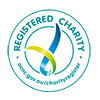The Foundation team recently caught up with Dr Morteza Aghmesheh, a senior staff specialist medical oncologist who just started working at POWH earlier this year. To get to know Dr Morteza Aghmesheh a bit more, we asked a few professional but also some personal questions.
What do you exactly do at Prince of Wales Hospital?
My focus is treating patients with gastrointestinal malignancies including cancers of the oesophagus, stomach, biliary tract, pancreas, liver, small and large intestine. I completed a graduate diploma in molecular genetics in 1999 at UNSW and a PhD in Cancer Genetics at UNSW and POWH in 2003. I completed my advanced training in medical oncology at Prince of Wales/St George/Wollongong network in 2008. I have been working as a medical oncologist at Wollongong Hospital since 2009. I am also an honorary clinical Professor at University of Wollongong.
What do you do outside of work? Do you have a hobby or another passion?
Preclinical and translational research are also partially hobbies, but I do play indoor soccer at least once a week and enjoy playing tennis and table tennis. I love reading books and exploring taste of coffee in different coffee shops.
How do you look after your wellbeing outside of work?
Apart from healthy diet and regular exercise, social gathering, though limited by COVID in recent years, has been a good meditation for me. I enjoy spending time with my family and dealing with my two sometimes challenging teenagers. It is always difficult to balance work and life otherwise. Cultivating the right mindset is the single most powerful factor that influence our wellbeing. There is immense potential in enjoying and appreciating every moment of our life no matter where we are or what we do.
What’s the best part of your day at work?
When I manage to reduce levels of stress and anxiety of patients with newly diagnosed cancers by explaining the cancer journey and the evolving treatment options. When delivering good news to cancer patients when their disease is responding to treatment. When you discharge patients from your care with good confidence that their cancer won’t recur, and they have been cured. Most importantly when you manage to put a stage IV cancer into remission with some chance of cure which is increasing in oncology practice with the help of novel and personalised medicine such as immunotherapies and targeted therapies.
Do you have a favourite memory with a patient of yours?
I have a patient who was diagnosed with stage IV colon cancer around 11 years ago. He was an overweight man and decided to lose around 40kg. This was the weight loss he required to qualify him for sky diving, his ultimate goal. I made a deal with him to jump together if he keeps his promise. He achieved his goal in 2017 and I had no choice than to jump with him. Something that I never thought would happen. We also used this event as a fundraiser for colon cancer research and raised $25K. I am pleased to say that he had an amazing response to treatment with complete radiological response and to this date remains in remission.
What is your biggest challenge at work?
When a patient develop disease progression and we have exhausted all lines of therapy including possible clinical trials and I cannot offer him/her any other treatment while the patient is eagerly looking for active treatment.
Funniest faux pas?
Once I had a new patient in clinic and felt that I have seen him before. After a long consultation, I eventually asked him if we met before. He said, “no but you may have seen me on TV” as he was a famous TV character.

